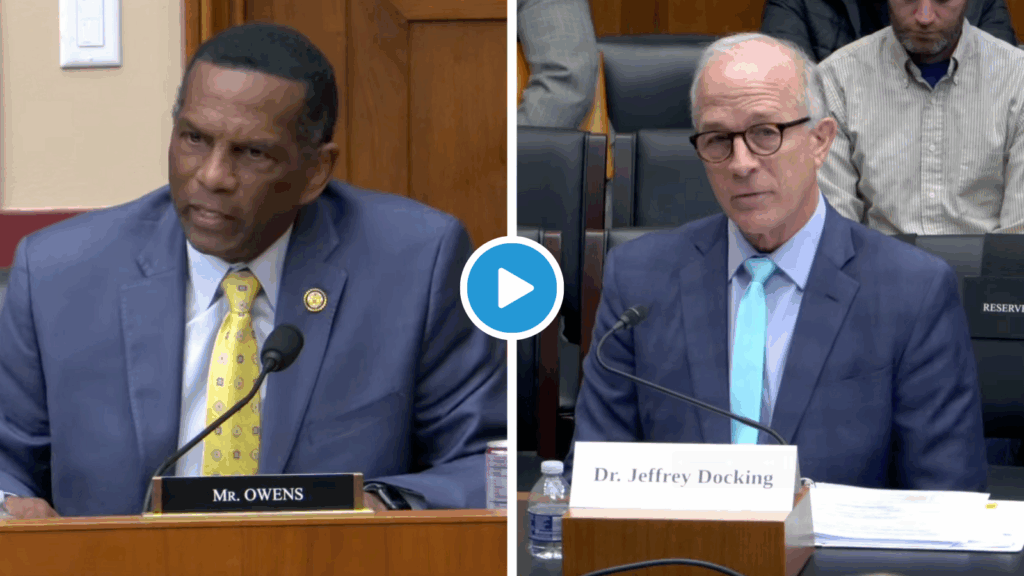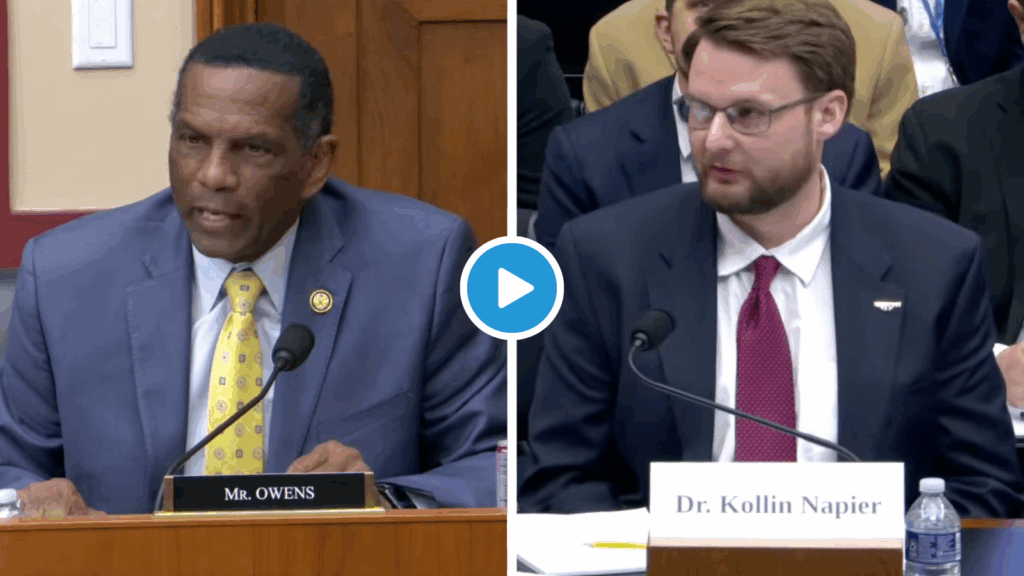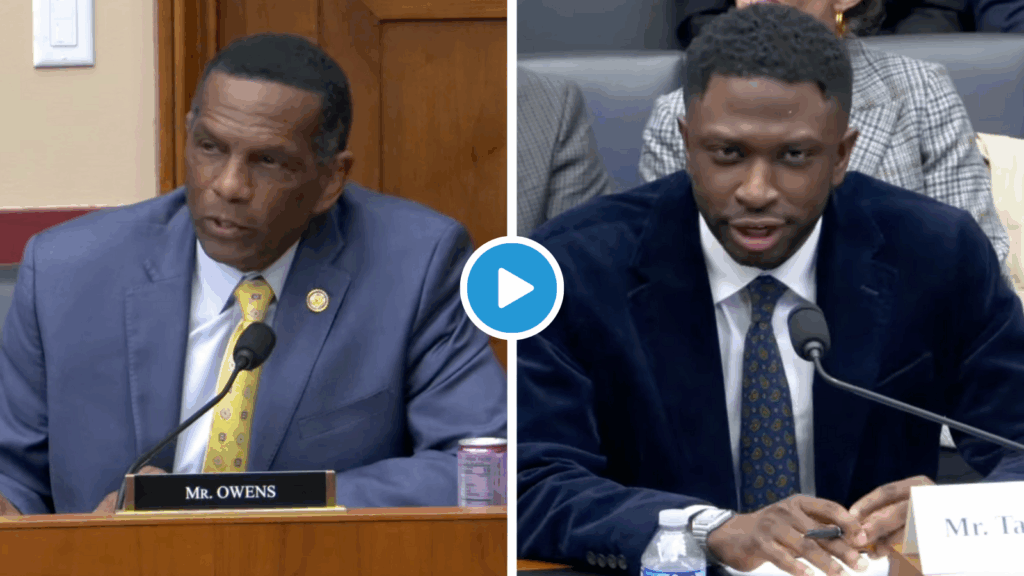HEARING RECAP: Owens Champions Innovation to Lower College Costs and Improve Outcomes
WASHINGTON, D.C. — Education and the Workforce Committee Vice Chair Burgess Owens (R-UT) participated in a full committee hearing on “The Future of College: Harnessing Innovation to Improve Outcomes and Lower Costs.”

Click here or above to watch.
Rep. Owens opened the hearing by emphasizing the failures of the current system and the need for student-focused innovation, highlighting the committee’s aggressive pace to find solutions.
Rep. Owens: “I was reminded by my team yesterday that this week, coming off the shutdown, the Education and Workforce Committee will be the most active with hearings of any committee. Over the last year, it’s passed more legislation than any of the last 20-plus years. There’s something I learned years and years ago: you cannot control the score board, but you can control the hustle. This committee is hustling.”
Rep. Owens questioned Dr. Jeffrey Docking, President of Adrian College, about his RISE platform, which leverages shared courses to lower costs while preserving the traditional campus experience.

Click here or above to watch.
Dr. Docking: “I’d be surprised if 10 years from now just about every school in the country isn’t sharing classes in some form or fashion. The beauty of this model is that it really preserves what’s best about traditional college education. We didn’t want to put together a model where a student had dinner with their parents and then just went up into their bedroom to take a class or two from their home. We love that uniquely American experience of going away to college and building a loft, and mom and dad have tears at the door, and you’re meeting new friends and going to class and participating in student government and chapel and eating in the dining hall. All of that is wonderful. We want to preserve that, but we have to figure out a way to control costs. And the way to do that is through technology and sharing.”
Rep. Owens asked Dr. Kollin Napier, Director of the Mississippi Artificial Intelligence Network, on how colleges can practically integrate AI to improve affordability and workforce readiness.
Dr. Napier: I think the challenge still remains making AI important for individual usage, whether that’s students or faculty or administration. So if I’m an English instructor, how can I best apply AI to my practice? If I’m teaching an advanced manufacturing course, again, how can I best apply? I think as we continue to see more of the adoption in these specific areas and fields, we’re going to see building of trust and comfort, and that’s going to in turn go back to our students in the way that they can engage with it. Our instructors are trusting what we are doing — what we call ‘educate the educator’ — and turning around and providing that for our students. And the things that are working, of course, are communication amongst the faculty and the students, the administration and the faculty, but more so the employers, the workforce, and them turning around and telling academia what they truly need in this current time.”
Rep. Owens then turned to Mr. Tade Oyerinde, Chancellor of Campus.edu, highlighting his entrepreneurial leadership and the importance of teaching students to embrace free-market innovation.

Click here or above to watch.
Mr. Oyerinde: “I think I was 28 or 29,” when asked at what age he purchased a two-year college.
The full hearing is available to watch here.
###